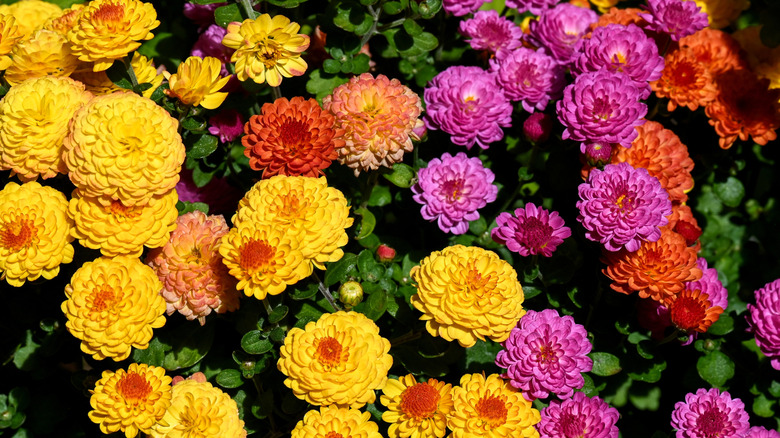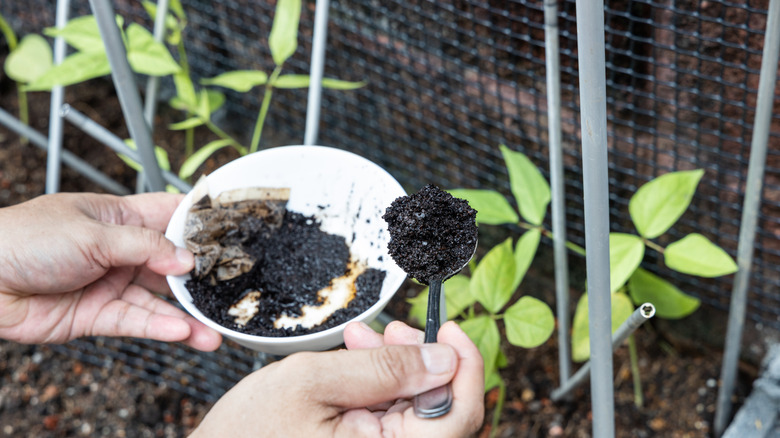What Happens To Your Mums When You Add Coffee Grounds?
The line between research-tested gardening aids and long-standing wives' tales or home remedies can seem thin at times. One such example is using leftover coffee grounds in your yard and garden, which offers a number of benefits beyond just being an avenue to recycle food waste. Coffee grounds contain carbon, nitrogen, and other organic compounds that foster healthy microbiomes to help plants grow. They can also ward off slugs or disease-causing bacteria. It's also said that coffee grounds are good for lowering the pH level in soil, making it more acidic. However, this is not always the case given these leftovers linger just below a neutral 7.0 on the scale. Still, when they are able to lower the pH balance, coffee grounds can be problematic for popular garden staples like mums (Chrysanthemum).
Mums are a genus within the Asteraceae (daisy) family that appear in a number of different varieties including anemones, pompoms, and spider mums. They grow best in full sun conditions with good soil drainage and a lot of organic matter. Mums thrive particularly well in USDA hardiness zones 3 through 9, meaning they can grow outdoors almost anywhere within the contiguous United States. Within soil-based growing mediums, mums look for pH levels around 6.0 to 6.5, so skewing the acidity with mix-ins like coffee grounds could lead to a lack of proper flowering growth.
Coffee grounds may add too much acidity for mums, but they also deter pests
If the main benefit of incorporating coffee grounds into your soil is to mix additional nutrients into the earth, going too far can have the opposite effect. Nutrients such as potassium, calcium, and magnesium are less abundant in acidic soils and that acidity can leach into the plant itself, causing toxic symptoms. This is true of mums, which are herbaceous perennials that should be potted a certain way to ensure they come back every year. Mixing old coffee grounds into your compost can help with issues like low soil drainage, but mums are hardy plants that can do without that addition.
Still, coffee grounds are worth considering for their other benefits, such as deterring pests. Mums are known to attract bees, but also more pesky insects such as aphids and caterpillars that chew through plants and leave behind substances like honeydew that can block photosynthesis and cause mold growth. There are plenty of ways to use coffee grounds to deter pests, be it mixing the grounds directly into compost or using a coffee-water drench to drive away slugs, ants, and more. Of course, sometimes you will also want to lower your soil's pH level to move away from the alkaline scale, as mums do want to grow in that slightly acidic range. Coffee grounds may help here, but it would be best to use them alongside more potent garden solutions such as elemental sulfur.

